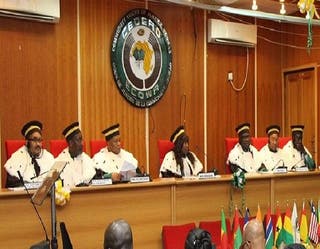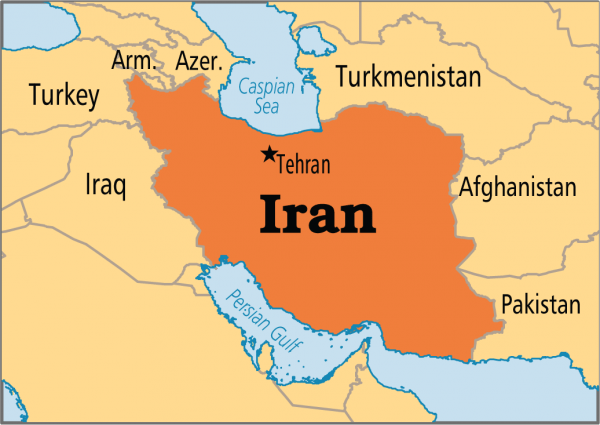
The Economic Community of West African States (ECOWAS) community court of justice has ruled that the blasphemy provisions in Kano state laws violate Nigeria’s international human rights commitments.
In a judgment delivered on Wednesday, the ECOWAS court held that the blasphemy provisions do not align with the freedom of expression guaranteed under regional and international human rights laws.
The judgment was delivered by Ricardo Gonçalves, the presiding judge, Sengu Koroma, and Dupe Atoki in a suit was filed by the Expression Now Human Rights Initiative (ENHRI), a non-governmental organisation in Nigeria, against the Federal Republic of Nigeria.
The NGO told the court that blasphemy laws led to “serious” human rights concerns across Nigeria and that individuals faced “arbitrary arrest, detention, and death sentences” for alleged blasphemous expression.
In its judgment, the court ruled that section 210 of the Kano State Penal Code is “vague” and “failed to provide clear guidance on what constitutes religious insult”.
The court ruled that the provision “lacked the legal precision required under international human rights standards”.
The court also held that section 382(b) of the Kano State Sharia Penal Code Law (2000), which imposes the death penalty for insulting the Prophet Muhammad, as “excessive and disproportionate” in a democratic society.
The court ruled that the aforementioned legal provisions are “incompatible with Nigeria’s obligations to protect freedom of expression”.
The court ordered the federal government to “repeal or amend the identified legal provisions and similar laws to align with Article 9(2) of the African Charter”.
“Though recognizing states’ legitimate interest in maintaining public order and respecting religious beliefs, the Court determined that these laws fail the established human rights tests of legality, necessity, and proportionality under both Article 9(2) of the African Charter on Human and Peoples’ Rights and Article 19 of the International Covenant on Civil and Political Rights (ICCPR),” a statement published on the court’s website reads.
“Regarding allegations of state failure to prevent blasphemy-related mob violence, the Court found insufficient evidence to support these claims, noting that media reports without additional corroboration did not meet the required standard of proof.
“Accordingly, the Court: Declared that it has jurisdiction to hear the case; declared the application admissible only as it concerns the right to freedom of expression; Declared that Section 210 of the Kano State Penal Code and Section 382(b) of the Kano State Sharia Penal Code Law (2000) are incompatible with Nigeria’s obligations to protect freedom of expression.”






